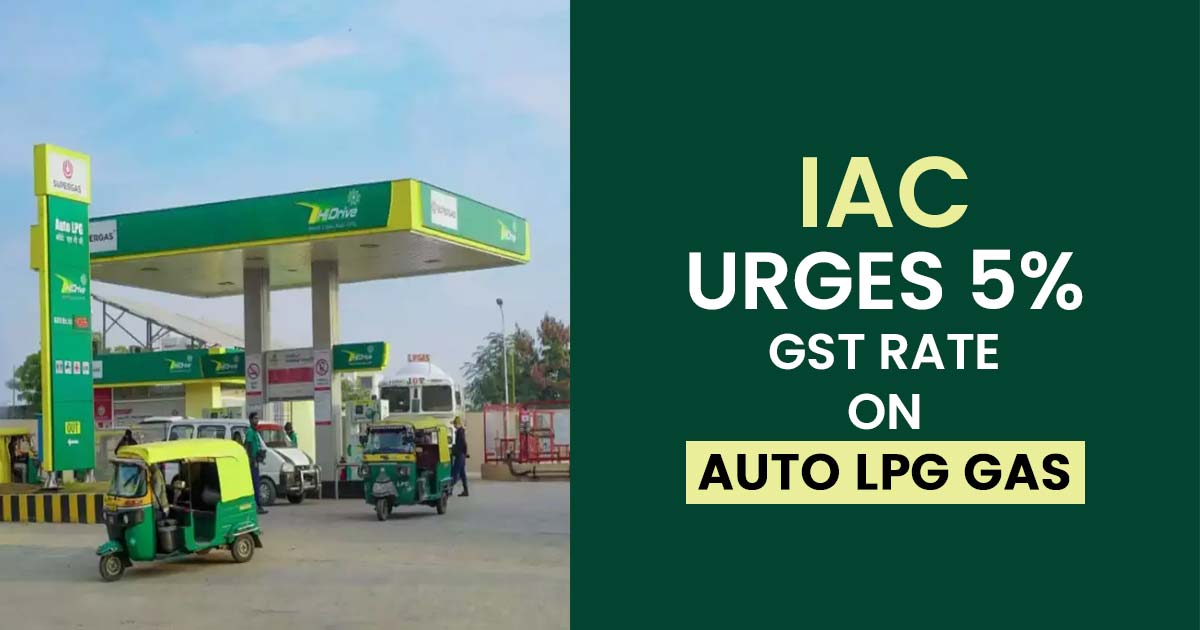
The Indian Auto LPG Coalition (IAC) has asked the Central government to diminish the Goods and Services Tax (GST) on Auto LPG from 18% to 5%, supporting equality with recent tax adjustments in the natural gas sector.
This request pursues the decision of Andhra Pradesh to cut the Value Added Tax (VAT) on Natural Gas from 24.5% to 5%, an initiative that lowers Compressed Natural Gas (CNG) prices and affects the market for clean automotive fuels like Auto LPG.
Suyash Gupta, Director General of the Indian Auto LPG Coalition specified that “Approximately 330 million vehicles in the country currently operate on environmentally harmful liquid fuels. Auto LPG presents a compelling alternative to traditional gasoline and diesel fuels, offering a combination of environmental, economic, and operational benefits for vehicle owners and society as a whole.”
The tax reduction request comes in between the efforts by the IAC to advocate for a competitive market environment for all clean automotive fuels. The association has also praised the Ministry of Road Transport and Highways (MoRTH) for its proposal to revise the Central Motor Vehicles Rules (CMVR), which has the motive to ease the rules for vehicles retrofitted with LPG kits by prolonging the fact of type approvals from three to six years, but with additional performance tests.
“it is a consequential relief since the validity of type approvals has been extended. Industry shows its gratitude to the Government of India and MoRTH for engaging with us,” Gupta mentioned.
Auto LPG is praised for its environmental advantages, accompanying lower emissions of carbon monoxide (CO), nitrogen oxides (NOx), particulate matter (PM), and hydrocarbons (HC) compared to conventional fuels. It joins the efforts of the world towards cleaner mobility solutions and the accomplishment of sustainable development.
Recommended: Easy Guide to GTA (Goods Transport Agency) Under the GST Act
The IAC on easing a tax reduction for Auto LPG, assumes the government can greatly contribute to the adoption of cleaner fuels, therefore keeping India’s climate action goals and assisting in the transition for a net-zero future.








